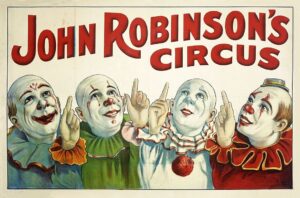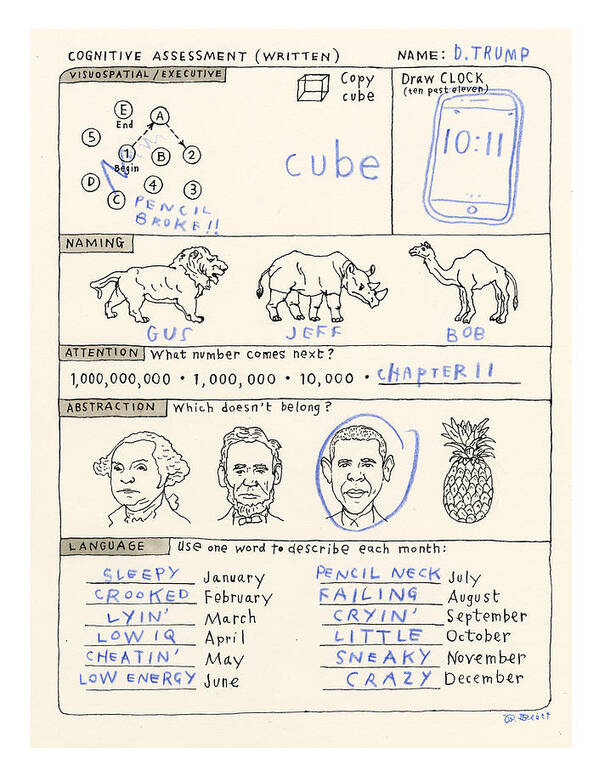At the moment, half of America is on a Harris high.
… the Harris phenomenon: the synchronization of a Democratic party energized by its sudden escape from a looming debacle with a media and entertainment apparatus eager for a new narrative and naturally inclined to favor any candidate not named Donald Trump.” — Ross Douthat
After she was given the nomination nod, the enthusiasm level among Democrats went from clinically depressed to a state of ecstatic triumphalism in twenty-four hours. And then Tim Walz hit the rhetorical jackpot, calling the Trumpists “weird.”
The accusation was, as journalist Bret Stephens put it, a stroke of genius, capturing in one word “the large part of the Venn diagram where sinister authoritarianism and ridiculous online subcultural tics overlap.”  What a rush it was for the Democrats, desperate to score a win in the zinger wars, to hear an insult that dared to address the all-around creepiness of Cult 45.
What a rush it was for the Democrats, desperate to score a win in the zinger wars, to hear an insult that dared to address the all-around creepiness of Cult 45.
But the honeymoon with “weird” may be over before I finish this blog.
Zingers
It’s a seemingly innocuous jibe. But “weird” has hidden psychological clout, and may backfire as soon as MAGA strategists realize they can rally crowds around it, as they did around “deplorables.”
Many Trumpists will see the barb as an opportunity to feed their ravenous hatred of the Other Side. These folks, whose hero is a bully with a victim complex, may even feel perversely vindicated by the insult, feeling that it legitimizes their resentment. Its juvenile tone may be especially galvanizing. “Weird” may be what a lot of them were called in middle school.
So this is where we find ourselves, this election season: Which side can come up with the most wounding insult.
Off to join the circus
In the USA right now, public discourse presents itself as a culture war. But it goes deeper than ideological quarrels. If we look at the collective vibration as pure energy, we see a state of psychic emergency. Dogs and cats can feel it. Your goldfish probably feels it.
The key symptom of the crisis is extreme polarization, an Us-against-Them storyline aided and abetted by the media. It has become so toxic that many sane people I know want to shut it all out, stonewalling any and all information about the election.
 The yearning to withdraw from the ugliness of society is a human universal, and every age has its own version of “I can’t bear to follow the news.” There was once a time when you could join the foreign legion, if you were a young man, or run away to join the circus. But such escapes are hard to pull off these days. Maybe we would find an Indian ashram that would let us in.
The yearning to withdraw from the ugliness of society is a human universal, and every age has its own version of “I can’t bear to follow the news.” There was once a time when you could join the foreign legion, if you were a young man, or run away to join the circus. But such escapes are hard to pull off these days. Maybe we would find an Indian ashram that would let us in.
Some try to avoid the mass hysteria by simply tuning out, declaring themselves uninterested in politics. Maybe they don’t have to worry about racial or religious discrimination or voting rights, because they were born in the In-crowd. Maybe they figure that because they, personally, will never need an abortion or IVF, it’s not their problem if those things are outlawed.
Yet here we all are. We’re all alive right now, in this historical moment, with these things happening. There’s no such thing as apolitical, say the activists.
We may not be interested in politics, but politics is interested in us
Astrologers, too, say it’s impossible to separate ourselves from the vicissitudes of the world we live in.
It’s written into the birth chart: everybody has a Jupiter and a Saturn. These two planets describe our relationship to the culture we inhabit, a relationship that is part of our soul path. Their placement in the chart is different for everybody — they might be dominant, or they might lurk subtly in the background — but everybody’s got them somewhere. They’re part of our identity.
Beware the anchorman
But an interest in our society’s workings does not mean indiscriminately taking in what most people mean by “the news.” To be engaged does not have to mean un-skeptically following what Gore Vidal called “show-biz politics,” which I write about here. Armando Iannucci, the creator of “Veep,” describes the media circus this way:
‘… a heightened performance piece that calls itself the election but is actually a multimedia event, cut up and memed across social platforms, re-edited, rolled in conspiracy theory and baked under oodles of manipulated footage, ready to pop up on your last remaining sane aunt’s media feed.” – Armando Iannucci
Quick: Who do you love more, your mother or your father?
In the USA’s winner-take-all, two-party system, the media makes it clear that picking a team is of paramount importance. Then it becomes a pumped-up horse race, with the grotesqueries of bloated war chests, psy-op campaign strategies and up-to-the-minute polls.
These manipulative contrivances define the political landscape for us, taking the guesswork out of each new headline. Your team is for the war in Gaza, the other team is against it. Your team is against the war in Ukraine, the other team is for it. So now you know where you stand.
contrivances define the political landscape for us, taking the guesswork out of each new headline. Your team is for the war in Gaza, the other team is against it. Your team is against the war in Ukraine, the other team is for it. So now you know where you stand.
Disney mermaids
In this climate of civil war, it isn’t just “political” events that get tagged. Every cultural curiosity, from the ridiculous to the sublime, gets labeled either Republican or Democratic: from the footwear of M&M candies to the skin color of Disney mermaids. Politicization has become America’s lingua franca.
But setting aside “politics” for a moment, however you define it (Goddess knows, there’ll be plenty of time upcoming to blog about Project 2025, mass deportations and foreign policy), I wonder if there’s another perspective on current events that’s worth considering. A more primal, more human perspective.
 Gut response
Gut response
What would it look like if we relied more on our own intelligence and instincts to evaluate what happens in public life? If there were no red/blue color-coding, and no talking heads, would we judge candidates and policies more from our gut, the way a cat sniffs a bowl of milk to see if it’s sour?
This kind of thing does happen occasionally, in spite of the media framing devices. After the announcement of Trump’s pick for VP, for example, the public sniffed the bowl of J. D. Vance and decided en masse that the nominee was a deeply unpleasant person.
And do you remember when a bird suddenly perched on the podium while Bernie Sanders was speaking? The crowd’s warm response, unforced and spontaneous, had nothing to do with ideological persuasion. Similarly, when Biden started stumbling in public, most people saw him as old and frail not because of his party affiliation but because …he’s old and frail.
More often, however, our unique and authentic responses are aborted; we’re simply told what things mean. We’re all so brainwashed by the filter of political labeling that, for example, on July 13th, when Trump got hit, I suspect most Americans’ immediate reaction was to wonder which side the shooter was on. We didn’t know how to feel about the crisis until we knew whether the kid was GOP or Democrat. (Of course, the answer turned out to be unsatisfyingly ambiguous. He was a registered Republican, but did his $15 donation to Act Blue make him a libtard? Ambiguous. Just like life.)
What if, instead of waiting for the media to pigeon-hole Thomas Matthew Crooks as one thing or the other, or waiting for them to find a manifesto from which to analyze his motivations, we’d taken a moment to look at the hapless young man’s face. It’s a picture that says a thousand words, such as “I’ve been bullied every day of my life.”
Moral signaling
I am not saying that researching the motives of a would-be assassin is unimportant, nor that comparing candidates’ policies is a trivial pursuit. I am saying that we’ve been so bludgeoned with the warring-factions context that we’ve lost sight of our inborn moral signaling. We fail to perceive things that  would otherwise be embarrassingly obvious. The kind of perceptions a child might have.
would otherwise be embarrassingly obvious. The kind of perceptions a child might have.
For instance, consider how a healthy, well-adjusted child might perceive a political event, where the speaker erupted in an unscripted laugh, a little burst of glee that was immediately echoed by her delighted audience. How would the child respond? What would this tell the child about the speaker?
And what if that child, knowing nothing about party platforms, heard a candidate calling a group of human beings “vermin”, or mocking the way a handicapped person used his arms. What would be the child’s unschooled takeaway? What if she heard this same grownup brag about picking out the right animals on a cognitive test. Would she think he was smart? Would she like this person?
The Mango Who Would be King
There’s a case to be made for pointing out what’s right in front of our faces. When Aaron Sorkin says “Trump’s a dangerous imbecile with an observable psychiatric disorder who related to his supporters on a fourth-grade level and treated the law as something for suckers and poor people,” I don’t think you have to be a registered Democrat to agree. I think you just have to watch Trump.
That said, Trumpism is an unusual case. It is a cult, and cults have their own logic. Its devotees are not driven by independent responses or inborn ethical instincts. They have given those over to a group vision, perhaps a fever dream of passionate retribution.
This vision doesn’t fit within the established order — in this case, a political duopoly — so the corporate media doesn’t know what to do with Trump. It is remarkable that he was once a Democrat, and it is equally remarkable that this fact is rarely mentioned. Everyone already knows he is driven by his singularity rather than by party identification.
Only the cult factor explains his base’s adoring acceptance of his myriad crimes and scandals. Consider what happened in England, by contrast, where the public had no hesitation busting Prince Andrew as a serial sexual predator. There was no cult around the old prince to give him a pass.
Consensus opinion declared that indecency was indecency, simple as that.
Morality en masse
Granted, the condemnation of Randy Andy was a relatively uncomplicated call. But I’m wondering what it would be like if all societies were as directly linked to their collective moral compass.
If we Americans weren’t so obsessed with party politics, would our unconditioned instincts have free rein to tell us what was healthy and right? Would we think a tiny handful of citizens should be obscenely rich, when thousands of their neighbors can’t afford a roof over their heads? Would we think it was a good idea to saddle young people with decades’ worth of debt because they’d pursued an education? Would we believe our taxes should go towards bombing villages to rubble, killing men, women and children against whom we hold no grievance?
Would we not think this was weird?
Images
Tim Walz, from his Twitter page
bullied child
Circus poster
Big Brother, Salon
Bird, The Graphics Fairy
T. Crooks, USA Today
Harris laughing, India Today
Cartoon of cognitive test by Barry Blitt


